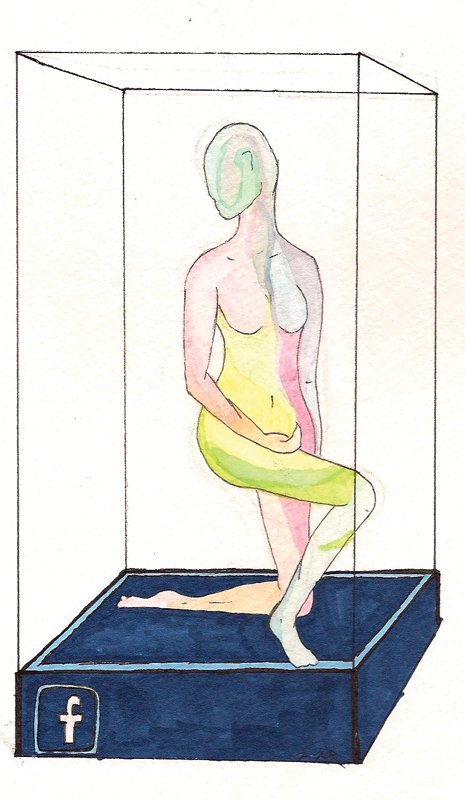The price of Facebook is privacy

The price of Facebook is privacy
By Tyler Dosaj
May 23, 2010 10:23 p.m.
A social networking site is no longer just “a place for friends” when Sen. Al Franken has to step in and demand privacy overhauls. A “Quit Facebook Day” movement has emerged with more than 13,000 strong, because Facebook has convoluted its privacy controls and made user profile information public by default.
On Saturday, the site finally announced a plan to simplify its privacy options ““ after Congress members, users and 25 million blog posts had plastered them with Big Brother comparisons for months.
Although Facebook’s apology might include shortening its now constitution-length privacy policy, viewable online, the site’s real privacy policy has always been to make open books of users first and change course only when enough people complain.
In 2007, Facebook Beacon told users what their friends were purchasing online. Like the site’s current public data sharing settings, the program was activated by default.
This policy of deceit hurts more than just users though. By encouraging people to fret over whether their lives are being scrutinized by stalkers, Facebook undermines its own philosophy of a “Web where the default is social,” a phrase CEO Mark Zuckerberg used at the company’s F8 Conference.
A “default social” Web may sound like what users currently dislike about Facebook, but the context of Zuckerberg’s comment was a promotion for utilities that place “like” buttons across the Internet and let developers more efficiently analyze user tastes. In this sense, “social” does not make life easier for stalkers ““ it merely expands Facebook’s Web presence.
There are actually two kinds of Internet privacy, and neither Facebook nor its incensed critics seem to distinguish between them. I’ll call one “creeper privacy” and the other “corporate privacy.”
The former is what most worries users. Social networkers want to keep their underage drinking habits and creepy garden equipment fetishes within small, controlled groups of like-minded deviants. No one wants to end up like the English coach driver who had his birthday barbecue broken up by a helicopter and armored police who saw his Facebook event and thought it was a rave. Nor are job hunters keen that prospective employers might judge them by photos they didn’t even upload.
Creeper privacy means a curtain over the habits users want to keep private and the freedom to not be stalked by creepers. It’s disconcerting to Google your name and find everything your parents wanted to know but were too shy to ask.
Facebook has a duty to enforce creeper privacy, both for our sakes and to stop critics from lumping together the site’s disparate privacy controls. Users are right, for instance, to ask for an effective immediately “delete account” option. “Quit Facebook Day” might be renamed “Delete Your Facebook Day” if instant deletion were possible, but for now users can only slink away while their personal information floats in a server, waiting a fortnight for account reactivation.
Corporate privacy is much less sinister. As users, we already consent to have our privacy violated by corporations. We know it’s no coincidence that Facebook started advertising trowels once we hit “like” on the gardening equipment fan page.
User data has made it to Pandora, Yelp and Microsoft Docs. Soon Facebook will connect to Blizzard’s Battle.net, an online gaming service. With an endlessly multiplying Web presence will come more targeted advertising ““ the source of Facebook’s revenue.
But because users tolerate Facebook’s own targeted ads, they shouldn’t be too put off by the idea of more, even if their personal data is, in fact, being trusted to corporate predators. If a Facebook contract permits it, corporations will pad their bottom line with user data, but they won’t send it to your puritan grandma.
Although Zuckerberg said in a TechCrunch interview that Facebook relaxed its privacy standards because society had “gotten comfortable” baring all online, remember that this idealism comes from a $11 billion company’s CEO.
Zuckerberg cited only the bloating blogosphere to prove users want a more open Internet, offering no evidence that concerns about Facebook privacy in particular had abated. They hadn’t.
As recently as December 2009, the Electronic Frontier Foundation echoed user suspicions that Facebook’s privacy changes would wrench control from users. Zuckerberg wanted the changes to “reflect what the current social norms are,” but these norms are make-believe, invented to service his company’s bottom line.
User data can be sold to third-party corporations responsibly. Pandora allows your friends to see what music you’re playing on the site. Users know this. But when they don’t know what’s being done with their e-lives, Facebook starts to seem more creepy than social.
Keep content-sharing transparent, and users will shed their paranoia. No one expects social networking to run without making a profit. But if Zuckerberg wants default data sharing with third-party companies, he has to sacrifice the policies that are pro-stalker, career-ruining or barbecue-obliterating.
E-mail Dosaj at [email protected].
Send general comments to [email protected].


